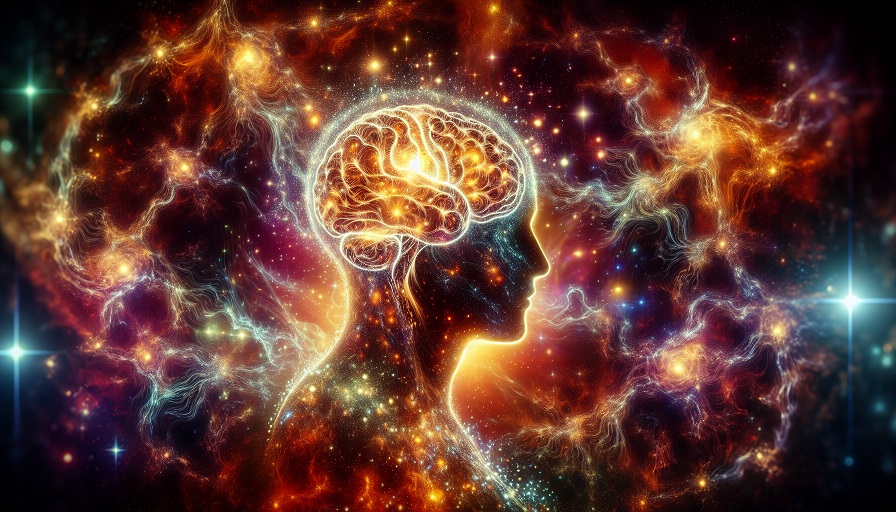
We throw the word “burnout” around like it’s a diagnosis. Tired at work? Burnt out. Struggling to concentrate? Burnt out. Feeling like a zombie by 2 p.m.? Definitely burnout. But what if those symptoms weren’t the result of doing too much… but of having too little to work with?
Here’s a radical idea: you’re not burnt out – you’re underpowered. Your brain doesn’t need another weekend off. It needs fuel.
Contents
Burnout or Brain Starvation?
Burnout is real, no doubt. But we tend to slap that label on anything that feels like mental fatigue or emotional depletion. What often gets missed is how biological those symptoms can be:
- Low mental energy
- Short attention span
- Irritability
- Poor memory
- Lack of motivation
These aren’t just psychological. They’re physiological. If your brain doesn’t have the resources it needs to run efficiently, it starts shutting down non-essential systems – focus, creativity, drive. Sound familiar?
It’s not burnout from doing too much. It’s your brain putting itself in power-save mode.
The Underpowered Brain: What’s Missing?
Your brain is the most energy-demanding organ in your body. It accounts for only 2% of your body weight but consumes about 20% of your energy. It’s basically a high-performance engine – and like any engine, it sputters when it runs low on fuel.
Here are a few things that often get depleted in people who “feel burnt out”:
- Glucose: The primary energy source for the brain. Skipping meals or surviving on sugar crashes your cognitive output.
- Micronutrients: B vitamins, magnesium, iron, and omega-3s are essential for neurotransmitter synthesis and neural signaling.
- Dopamine and acetylcholine: These neurotransmitters drive focus, drive, and learning. When they’re low, everything feels hard or meaningless.
- Sleep quality: Poor sleep impairs memory consolidation, decision-making, and emotional regulation. It also limits your brain’s ability to “recharge.”
Burnout isn’t always the result of being overworked. It’s often the result of being undernourished.
Why the Usual Solutions Don’t Work
Most burnout advice centers around boundaries, rest, and unplugging. And yes, those matter. But they don’t address the root cause when the real problem is cognitive depletion. A day off won’t fix a nutrient deficit. A meditation app won’t create neurotransmitters.
You can’t recover from underpowering by simply reducing input. You have to increase support.
Recharging a Depleted Brain
To restore mental energy and clarity, you need to rebuild what your brain has lost or lacked for too long. That means:
1. Prioritize Nutrient-Dense Foods
Think less sugar, more brain fuel: eggs, fatty fish, leafy greens, nuts, legumes. These foods support the metabolic and chemical processes your brain needs to function well.
2. Optimize Your Sleep Environment
Get serious about sleep. No screens an hour before bed, consistent sleep and wake times, dark room, magnesium support if needed. Your brain clears waste and restores function during deep sleep.
3. Reduce Dopamine Overload
Constant hits from social media, email, and multitasking fry your brain’s reward system. Simplify your inputs to give your dopamine receptors a reset. You’ll feel less scattered and more motivated.
4. Rebuild Neurochemical Reserves with Nootropics
If your baseline is already low, food and habits may not be enough to get you back to full strength quickly. That’s where cognitive supplements – specifically nootropics – can make a difference.
The Case for Brain-Specific Support
Nootropics provide targeted support for mental energy, clarity, and resilience. Unlike generic vitamins or quick fixes like caffeine, well-formulated nootropics work with your brain chemistry to restore balance and performance.
Here are some of the most effective ones:
- Citicoline: Boosts mental energy and supports memory by enhancing phospholipid synthesis and acetylcholine levels.
- L-Tyrosine: Replenishes dopamine and norepinephrine, especially during stress or sleep loss.
- Rhodiola Rosea: Fights fatigue and improves endurance under mental strain.
- Bacopa Monnieri: Supports memory and cognitive recovery while reducing brain fog and mental fatigue.
A formula like Mind Lab Pro combines these ingredients with brain-essential vitamins and adaptogens to provide holistic cognitive support – restoring your baseline, not just masking your symptoms.
This Isn’t About “Pushing Through”
If you’re running on empty, the answer isn’t to try harder. But it also isn’t to retreat completely. What you need is power – cognitive energy – not just rest.
Most people don’t feel burnt out because they’ve been working hard. They feel burnt out because their brains haven’t been supported for the work they’re doing.
Before you label yourself as “burnt out,” ask yourself: Is my brain underpowered?
Have I fed it well? Let it recover properly? Given it the building blocks it needs to think clearly, stay motivated, and handle stress?
Burnout doesn’t always require pulling back. Sometimes, it requires leaning in – with the right fuel. And when you support your brain biologically, you’ll often find the spark you thought you’d lost was never really gone. It was just running on fumes.

